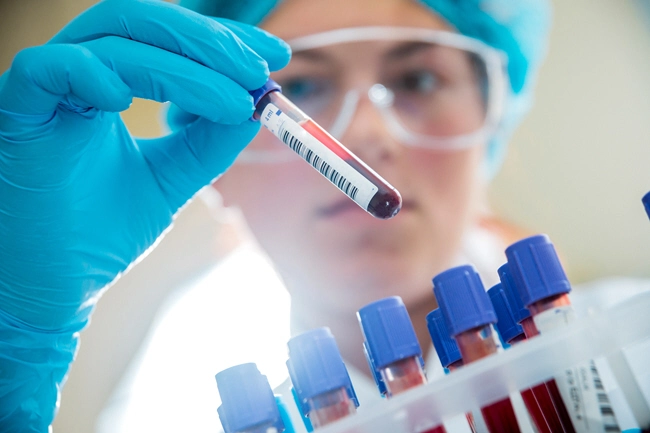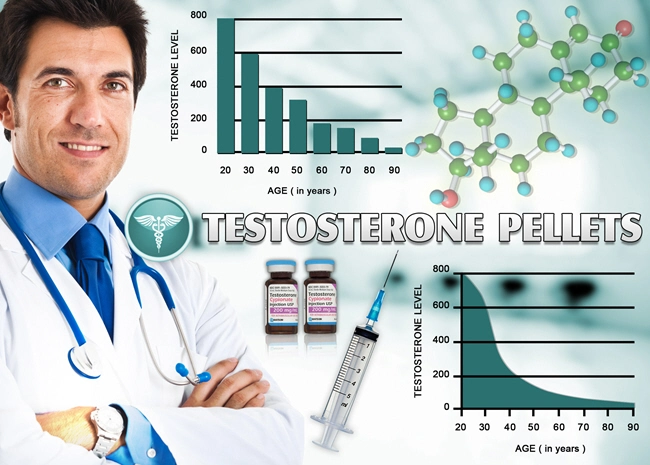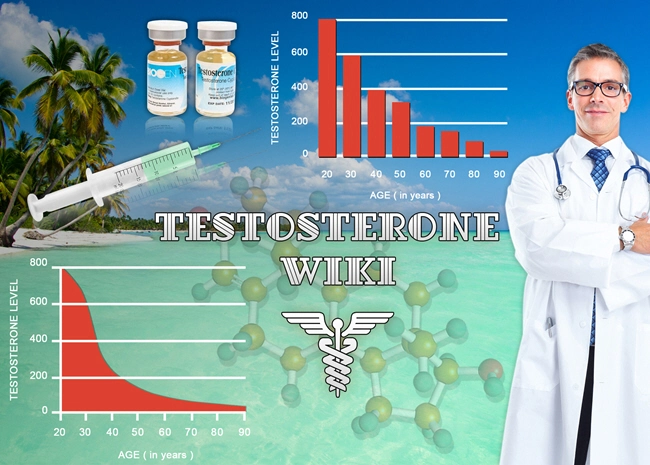
Introduction to Testosterone Propionate
Testosterone propionate is a synthetic form of the naturally occurring hormone testosterone, which plays a crucial role in male health. This esterified variant of testosterone is commonly used in hormone replacement therapy (HRT) for American men experiencing low testosterone levels, a condition known as hypogonadism. Understanding the use, benefits, and potential side effects of testosterone propionate is essential for those considering this form of treatment.
The Role of Testosterone in Men's Health
Testosterone is vital for numerous bodily functions in men, including muscle mass maintenance, bone density, fat distribution, red blood cell production, and sexual and reproductive function. As men age, testosterone levels naturally decline, which can lead to symptoms such as fatigue, decreased libido, erectile dysfunction, and mood changes. Hormone therapy, including the use of testosterone propionate, aims to restore testosterone levels to a healthy range, thereby alleviating these symptoms.
Indications for Testosterone Propionate Therapy
Testosterone propionate is prescribed for men diagnosed with hypogonadism, where the body fails to produce sufficient testosterone. This condition can be caused by testicular injury, genetic disorders, or other medical conditions. The therapy is also considered for men experiencing age-related testosterone decline, although this use is more controversial and should be approached with caution and under strict medical supervision.
Administration and Dosage
Testosterone propionate is typically administered via intramuscular injection. Due to its short half-life, injections are required every two to three days to maintain stable testosterone levels. The dosage varies based on individual needs and response to therapy, typically ranging from 50 to 100 mg per injection. Regular monitoring of testosterone levels is crucial to ensure the therapy is effective and safe.
Benefits of Testosterone Propionate
The primary benefit of testosterone propionate therapy is the restoration of testosterone levels, which can significantly improve quality of life for men with hypogonadism. Benefits may include increased energy levels, improved mood, enhanced libido, and better physical performance. Additionally, testosterone propionate can help maintain muscle mass and bone density, which are critical for overall health and well-being.
Potential Side Effects and Risks
While testosterone propionate can be highly beneficial, it is not without risks. Potential side effects include acne, hair loss, fluid retention, and mood swings. More serious risks include an increased risk of cardiovascular disease, liver toxicity, and the development of prostate issues. It is essential for men to discuss these risks with their healthcare provider and undergo regular health screenings while on therapy.
Monitoring and Long-Term Management
Effective management of testosterone propionate therapy requires regular monitoring of testosterone levels, as well as other health indicators such as hematocrit, liver function, and prostate-specific antigen (PSA) levels. Adjustments to the dosage or treatment plan may be necessary based on these results. Long-term management also involves lifestyle modifications, such as maintaining a healthy diet and regular exercise, to support overall health and maximize the benefits of hormone therapy.
Conclusion: Making Informed Decisions
Testosterone propionate can be a valuable tool in managing low testosterone levels in American men, offering significant improvements in quality of life. However, it is crucial for men to approach this therapy with a comprehensive understanding of its benefits and risks. Working closely with a healthcare provider to monitor treatment and make informed decisions is essential for achieving the best possible outcomes. By staying informed and proactive, men can navigate the complexities of hormone therapy and maintain their health and vitality.
Contact Us Today For A Free Consultation
Dear Patient,
Once you have completing the above contact form, for security purposes and confirmation, please confirm your information by calling us.
Please call now: 1-800-380-5339.
Welcoming You To Our Clinic, Professor Tom Henderson.

- Testosterone Propionate: Benefits, Risks, and Hormonal Balance for American Males [Last Updated On: March 17th, 2025] [Originally Added On: March 17th, 2025]
- Testosterone Propionate's Impact on Cognitive Function in American Males: Benefits and Risks [Last Updated On: March 17th, 2025] [Originally Added On: March 17th, 2025]
- Testosterone Propionate: Enhancing Male Fertility in American Men - Benefits and Risks [Last Updated On: March 18th, 2025] [Originally Added On: March 18th, 2025]
- Testosterone Propionate in American Sports: Ethical Issues and Health Risks for Male Athletes [Last Updated On: March 18th, 2025] [Originally Added On: March 18th, 2025]
- Testosterone Propionate's Role in Male Pattern Baldness Among American Men [Last Updated On: March 18th, 2025] [Originally Added On: March 18th, 2025]
- Testosterone Propionate: Enhancing Sleep Quality in American Men [Last Updated On: March 19th, 2025] [Originally Added On: March 19th, 2025]
- Testosterone Propionate's Role in Weight Management for Obese American Males [Last Updated On: March 20th, 2025] [Originally Added On: March 20th, 2025]
- Testosterone Propionate: Benefits, Risks, and Ethical Use in American Men [Last Updated On: March 20th, 2025] [Originally Added On: March 20th, 2025]
- Long-Term Health Risks of Testosterone Propionate Use in American Men [Last Updated On: March 21st, 2025] [Originally Added On: March 21st, 2025]
- Testosterone Propionate's Impact on Immune Function in American Males: A Comprehensive Review [Last Updated On: March 21st, 2025] [Originally Added On: March 21st, 2025]
- Testosterone Propionate: Boosting Energy Levels in American Men [Last Updated On: March 21st, 2025] [Originally Added On: March 21st, 2025]
- Testosterone Propionate: A Promising Therapy for Osteoporosis in American Men [Last Updated On: March 21st, 2025] [Originally Added On: March 21st, 2025]
- Testosterone Propionate: A Promising Treatment for Depression in American Males [Last Updated On: March 22nd, 2025] [Originally Added On: March 22nd, 2025]
- Testosterone Propionate: Benefits, Risks, and Use in American Male Bodybuilding [Last Updated On: March 22nd, 2025] [Originally Added On: March 22nd, 2025]
- Testosterone Propionate: A Promising Treatment for Chronic Pain in American Men [Last Updated On: March 22nd, 2025] [Originally Added On: March 22nd, 2025]
- Testosterone Propionate: Benefits, Risks, and Aesthetic Use in American Males [Last Updated On: March 22nd, 2025] [Originally Added On: March 22nd, 2025]
- Testosterone Propionate: A Promising Treatment for Obesity in American Males [Last Updated On: March 23rd, 2025] [Originally Added On: March 23rd, 2025]
- Testosterone Propionate Use and Diabetes Risk in American Males: A Comprehensive Analysis [Last Updated On: March 23rd, 2025] [Originally Added On: March 23rd, 2025]
- Testosterone Propionate: Psychological Effects and Risks for American Men [Last Updated On: March 23rd, 2025] [Originally Added On: March 23rd, 2025]
- Testosterone Propionate: A Promising Treatment for Chronic Fatigue in American Males [Last Updated On: March 23rd, 2025] [Originally Added On: March 23rd, 2025]
- Testosterone Propionate: Enhancing Muscle, Energy, and Psychological Health in American Men [Last Updated On: March 24th, 2025] [Originally Added On: March 24th, 2025]
- Testosterone Propionate's Cardiovascular Impact on American Men: Benefits, Risks, and Guidelines [Last Updated On: March 24th, 2025] [Originally Added On: March 24th, 2025]
- Testosterone Propionate: Enhancing Libido and Sexual Performance in American Men [Last Updated On: March 24th, 2025] [Originally Added On: March 24th, 2025]
- Testosterone Propionate: Enhancing Muscle Recovery in American Men - Benefits and Risks [Last Updated On: March 24th, 2025] [Originally Added On: March 24th, 2025]
- Testosterone Propionate: Enhancing Recovery and Performance in American Male Athletes [Last Updated On: March 24th, 2025] [Originally Added On: March 24th, 2025]
- Testosterone Propionate: Benefits and Risks in Hormone Replacement Therapy for American Males [Last Updated On: March 25th, 2025] [Originally Added On: March 25th, 2025]
- Testosterone Propionate: A Promising Treatment for Anemia in American Men [Last Updated On: March 25th, 2025] [Originally Added On: March 25th, 2025]
- Testosterone Propionate: Benefits, Risks, and Legal Issues for American Men [Last Updated On: March 25th, 2025] [Originally Added On: March 25th, 2025]
- Testosterone Propionate Use and Liver Health Risks in American Males [Last Updated On: March 25th, 2025] [Originally Added On: March 25th, 2025]
- Testosterone Propionate's Impact on Bone Health in American Men: A Comprehensive Analysis [Last Updated On: March 25th, 2025] [Originally Added On: March 25th, 2025]
- Testosterone Propionate's Impact on Blood Pressure in American Men: A Comprehensive Analysis [Last Updated On: March 25th, 2025] [Originally Added On: March 25th, 2025]
- Testosterone Propionate: Enhancing Sexual Function in American Men [Last Updated On: March 26th, 2025] [Originally Added On: March 26th, 2025]
- Testosterone Propionate: Enhancing Joint Health in American Men [Last Updated On: March 26th, 2025] [Originally Added On: March 26th, 2025]
- Testosterone Propionate: Enhancing Sexual Health in American Men - Benefits and Risks [Last Updated On: March 26th, 2025] [Originally Added On: March 26th, 2025]
- Testosterone Propionate: Enhancing Endurance in American Men - Benefits and Risks [Last Updated On: March 26th, 2025] [Originally Added On: March 26th, 2025]
- Testosterone Propionate's Impact on Immune System in American Men: Risks and Benefits [Last Updated On: March 26th, 2025] [Originally Added On: March 26th, 2025]
- Testosterone Propionate: A Promising Treatment for Muscle Wasting in American Males [Last Updated On: March 26th, 2025] [Originally Added On: March 26th, 2025]
- Testosterone Propionate: Benefits, Risks, and Legalities for American Weightlifters [Last Updated On: March 26th, 2025] [Originally Added On: March 26th, 2025]
- Testosterone Propionate: A Promising Stress Management Solution for American Men [Last Updated On: March 26th, 2025] [Originally Added On: March 26th, 2025]
- Testosterone Propionate's Impact on Cholesterol Levels in American Men: Cardiovascular Risks [Last Updated On: March 26th, 2025] [Originally Added On: March 26th, 2025]
- Testosterone Propionate in Anti-Aging: Benefits, Risks, and Clinical Insights for American Men [Last Updated On: March 26th, 2025] [Originally Added On: March 26th, 2025]
- Testosterone Propionate: Boosting Energy in American Men with Low Testosterone [Last Updated On: March 27th, 2025] [Originally Added On: March 27th, 2025]
- Testosterone Propionate: Managing Hormonal Imbalances in American Men [Last Updated On: March 27th, 2025] [Originally Added On: March 27th, 2025]
- Testosterone Propionate's Impact on Mood Swings in American Men: Benefits and Risks [Last Updated On: March 27th, 2025] [Originally Added On: March 27th, 2025]
- Testosterone Propionate: A Promising Treatment for Low Sperm Count in American Males [Last Updated On: March 27th, 2025] [Originally Added On: March 27th, 2025]
- Testosterone Propionate: Enhancing Strength and Performance in American Men [Last Updated On: March 28th, 2025] [Originally Added On: March 28th, 2025]
- Testosterone Propionate: Uses, Benefits, and Risks for American Men's Health and Fitness [Last Updated On: March 29th, 2025] [Originally Added On: March 29th, 2025]
- Testosterone Propionate: Cardiovascular Effects and Risks in American Men [Last Updated On: March 29th, 2025] [Originally Added On: March 29th, 2025]
- Testosterone Propionate: Benefits, Dosage, and Risks for American Men's Muscle Building [Last Updated On: March 30th, 2025] [Originally Added On: March 30th, 2025]
- Testosterone Propionate: Enhancing Mental Health in American Men - Benefits and Risks [Last Updated On: March 30th, 2025] [Originally Added On: March 30th, 2025]
- Testosterone Propionate: Enhancing Sexual Health and Performance in American Men [Last Updated On: March 30th, 2025] [Originally Added On: March 30th, 2025]
- Testosterone Propionate: Enhancing Hormonal Health in American Men [Last Updated On: March 31st, 2025] [Originally Added On: March 31st, 2025]
- Testosterone Propionate: Enhancing Bone Density in American Men [Last Updated On: April 2nd, 2025] [Originally Added On: April 2nd, 2025]
- Testosterone Propionate's Impact on Emotional Health in American Men [Last Updated On: April 2nd, 2025] [Originally Added On: April 2nd, 2025]
- Testosterone Propionate in Sports: Benefits, Risks, and Ethical Dilemmas for American Athletes [Last Updated On: April 4th, 2025] [Originally Added On: April 4th, 2025]
- Testosterone Propionate: Enhancing Strength and Risks for American Men [Last Updated On: April 5th, 2025] [Originally Added On: April 5th, 2025]
- Testosterone Propionate: A Potential Treatment for Fatigue in American Males [Last Updated On: April 5th, 2025] [Originally Added On: April 5th, 2025]
- Testosterone Propionate: Benefits, Risks, and Uses in American Men's Health and Fitness [Last Updated On: April 6th, 2025] [Originally Added On: April 6th, 2025]
- Testosterone Propionate: A Fast-Acting Solution for Muscle Loss in American Males [Last Updated On: April 7th, 2025] [Originally Added On: April 7th, 2025]
- Testosterone Propionate: Enhancing Sexual Desire and Function in American Men [Last Updated On: April 8th, 2025] [Originally Added On: April 8th, 2025]
- Testosterone Propionate: Enhancing Strength Training in American Men - Benefits and Risks [Last Updated On: April 8th, 2025] [Originally Added On: April 8th, 2025]
- Testosterone Propionate's Impact on Cardiovascular Health in American Men: Risks and Mitigation [Last Updated On: April 10th, 2025] [Originally Added On: April 10th, 2025]
- Testosterone Propionate: Psychological Impacts and Benefits for American Men [Last Updated On: April 10th, 2025] [Originally Added On: April 10th, 2025]
- Testosterone Propionate: Enhancing American Men's Health Through Hormone Replacement Therapy [Last Updated On: April 11th, 2025] [Originally Added On: April 11th, 2025]
- Testosterone Propionate: Benefits, Administration, and Considerations for American Men's HRT [Last Updated On: April 12th, 2025] [Originally Added On: April 12th, 2025]
- Testosterone Propionate: Effects, Risks, and Reproductive Health Impact in American Men [Last Updated On: April 13th, 2025] [Originally Added On: April 13th, 2025]
- Testosterone Propionate: Enhancing Sports Performance and Associated Risks for American Athletes [Last Updated On: April 14th, 2025] [Originally Added On: April 14th, 2025]
- Testosterone Propionate: Enhancing Mood and Cognition in American Men [Last Updated On: April 15th, 2025] [Originally Added On: April 15th, 2025]
- Testosterone Propionate: A Promising Therapy for Sarcopenia in Aging American Males [Last Updated On: April 15th, 2025] [Originally Added On: April 15th, 2025]
- Testosterone Propionate: Benefits, Risks, and Ethical Use in Men's Health [Last Updated On: April 16th, 2025] [Originally Added On: April 16th, 2025]
- Testosterone Propionate: Enhancing Bone and Joint Health in Aging American Men [Last Updated On: April 16th, 2025] [Originally Added On: April 16th, 2025]
- Testosterone Propionate: Cardiovascular Benefits and Risks in American Men [Last Updated On: April 18th, 2025] [Originally Added On: April 18th, 2025]
- Testosterone Propionate: Enhancing Performance and Risks for American Men [Last Updated On: April 18th, 2025] [Originally Added On: April 18th, 2025]
- Testosterone Propionate: A Promising Treatment for Lethargy in American Males [Last Updated On: April 18th, 2025] [Originally Added On: April 18th, 2025]
- Testosterone Propionate in Men's Health: Benefits, Risks, and Administration in the US [Last Updated On: April 19th, 2025] [Originally Added On: April 19th, 2025]
- Testosterone Propionate: Enhancing Sexual Vitality and Risks in American Men [Last Updated On: April 19th, 2025] [Originally Added On: April 19th, 2025]
- Testosterone Propionate: Enhancing Emotional Well-being in American Men [Last Updated On: April 20th, 2025] [Originally Added On: April 20th, 2025]









